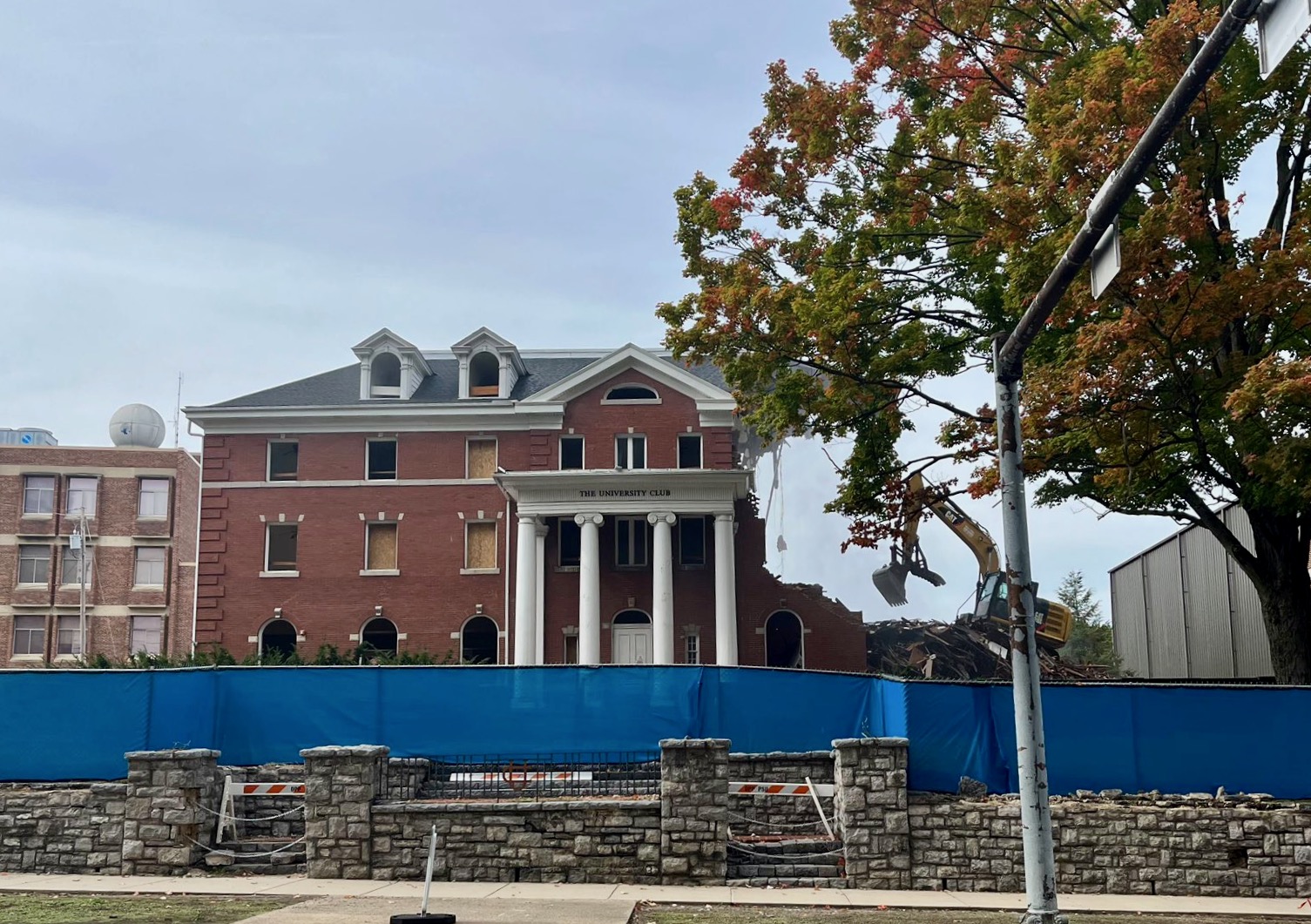
Demolition of the 108-year-old University Club on West College Avenue began on Friday, Sept. 30, 2022. Photo by Annie Kubiak | Onward State

Demolition of the 108-year-old University Club on West College Avenue began on Friday, Sept. 30, 2022. Photo by Annie Kubiak | Onward State
After 108 years along West College Avenue in State College, the former University Club building is no more.
Penn State began demolition of the building on Friday, seven months after purchasing the .64-acre property for $4.07 million.
University officials acknowledged in February, when the purchase was presented to the Board of Trustees for approval, that the building would be demolished because of the extensive costs that would be required for renovations, which Senior Vice President for Finance and Business Sara Thorndike said was estimated to be “a couple million dollars.”
Demolition cost was estimated to be “just shy of a million dollars,” including “a fair amount” of asbestos abatement, according to Bill Sitzabee, vice president for facilities management and planning.
Penn State has not yet revealed what it plans to do with the land. Thorndike said the acquisition is “for future opportunities,” and called the location a “critical connection point.”
It’s demo day for the old University Club property on West College Ave! @penn_state acquired the property earlier this year. @CentreCountyRep @StateCollegecom pic.twitter.com/PoAWdhuJJ4
— Rob Lydick (@roblydick) September 30, 2022
The University Club property is surrounded entirely by other Penn State properties, with the West Campus Steam Plant to the east, 101 N. Atherton St. (which was purchased by the university in 2020) to the west and the Applied Research Lab to the North. The parcel was the last on the campus side of West College Avenue between Porter Road and North Atherton Street that was not owned by Penn State.
Penn State sold the land to the University Club for $1 in 1913 for the sole use of constructing and operating a social club with residential rooms. The deed gave Penn State right of first refusal should the club sell the property.
The University Club hosted social events for club members, rented out its space for other events, and rented rooms to university students, faculty and staff with short-term lease options.
James Collins, president of the nonprofit University Club board, told StateCollege.com in February that several circumstances led to the decision to sell the property.
Reserves accrued for the purpose of building renovations had to be used to keep the club afloat after the COVID-19 pandemic struck, resulting in diminished events and rentals.
At the same time, one of the University Club’s primary draws for renters was its location, but it “couldn’t compete” with the boom in construction of downtown apartment buildings, Collins said.
Those factors, along with the aging demographic of the club’s members and the condition of the building requiring extensive upkeep and renovations, led to the decision by the club’s board to offer the property to Penn State.
“We felt we were doing a good thing for us and for the university,” Collins said.
Proceeds from the sale are being maintained by the club, which is a 501c7 organization as a nonprofit social club, and will not be disbursed to any individuals, Collins said. He added that the club was evaluating options for a new location.
“We’re excited for our future, whatever that may be, and to see Penn State’s plans [for the property],” Collins said.
Receive all the latest news and events right to your inbox.

80% of consumers turn to directories with reviews to find a local business.